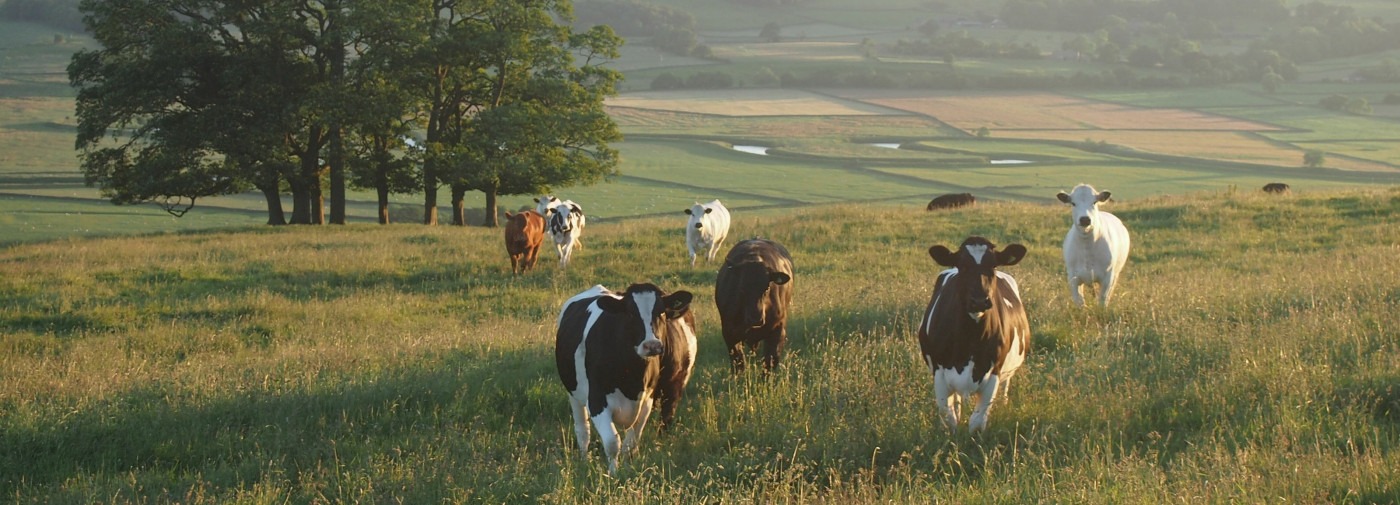Good news for beefeaters! – Cows in the UK to be given methane blockers
Methane is one of the two key gases that humanity needs to tackle in the battle against climate change. Although carbon dioxide has a longer-lasting effect on warming, methane has more than 80 times the warming power of CO2 over the first 20 years after it reaches the atmosphere. At least 25% of today’s global warming is driven by methane from human actions, so cutting down the amount of methane is a key challenge. So what produces methane? Methane is emitted during the production and transport of fossil fuels, but it also results from livestock and agricultural practices. And that’s one of the driving factors behind a new government scheme, which aims to give methane blockers to cows to cut down on their emissions.
Cows and farming are surprisingly big contributors to methane emissions. It used to be a bit of a joke, blaming cow farts for global warming. In fact, Alexandria Ocasio-Cortez’s Green New Deal briefing document was much mocked for an FAQ suggesting that it might need to deal with “farting cows” to save America. However, the methane-producing cattle burps and manure is a large factor contributing to greenhouse gas emissions – globally, cows and other farm animals are responsible for about 14% of human-induced climate emissions. As a result, if it was possible to cut down on the amount of methane produced by these animals, it would make a noticeable dent in emissions.
The methane-producing cattle burps and manure is a large factor contributing to greenhouse gas emissions
So, enter the UK government and its net-zero growth strategy. The report noted the emergence of new methane blocking products, which could be added to animal feeds to reduce digestive emissions – they’re being trialled currently, and are expected to enter the market from 2025. Farmers might be forced to use these supplements with their 9.4m cows if they are proven to be effective. The report said: “We will explore the role of industry and government to maximise uptake of such products for suitable cattle farm systems at pace, through a phased approach. This will include the ambition to mandate the introduction of products with proven safety and efficacy in compound feeds for cattle as soon as practically possible in England.”
Tom Bradshaw, deputy president of the National Farmers’ Union (NFU), said most of the methane emitted by cows is released by belching, “the front end rather than the back end”. He added: “The evidence suggests these products could be useful. I don’t think we know enough yet about the impact they will have on the efficiency of the diet, but it’s something that we have to investigate to try and reduce methane emissions.”
Although an effective methane blocker might cut emissions, there has been criticism that the government is looking in the wrong place. Vicki Hird, head of farming for Sustain, an alliance of organisations that promote better food and farming, said: “Governments and industry love their techno fixes like cattle feed methane suppressants and these may help a bit. But they won’t fix the major harms associated with our huge livestock fixation, from rainforest clearance for feeds and pasture to UK river pollution and harm to wildlife, all of which inhibit action on climate, too. We need to produce and eat less and better meat using agro-ecological tools known for whole farm and nature benefits.”
The evidence suggests these products could be useful. […] it’s something that we have to investigate to try and reduce methane emissions.
–Tom Bradshaw, deputy president of the National Farmers’ Union (NFU)
Elisa Allen, PETA Vice President of UK Programmes and Operations, said that the idea is “foolish and absurd”. She added: “Feeding cows ‘methane blockers’ while continuing to farm them is like applying a sticking plaster to a broken bone. It is a desperate act that absolutely fails to mitigate the ecological nightmare caused by the dirty old habit of raising and killing animals for food.”
A government spokesperson said: “Well-managed livestock can provide various environmental benefits and we plan to encourage the uptake of high-efficacy methane-suppressing products once they reach the UK market.” They are currently yet to publish their response to the consultation of the farming industry, scientists and the public on cattle feed. It is also awaiting response from the Food Standards Agency, the body responsible for licencing all animal feeds, on risk assessments regarding the impact of adding these methane blockers.

Comments